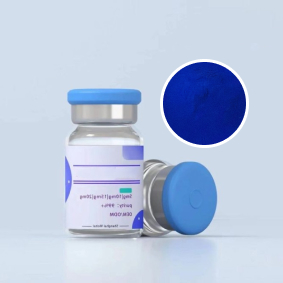
Tirzepatide boosts weight loss in lifestyle intervention patients
In a recent study published in the journal Nature Medicine, researchers investigated the effects of tirzepatide, a glucagon-like peptide-1 (GLP-1) receptor agonist and glucose-dependent insulinotropic polypeptide, in bolstering weight loss and preventing weight gain in overweight and obese patients under intensive lifestyle interventions. Their research methodology comprised a 72-week, double-blind, randomized, 1:1, placebo-controlled trial on adults whose 12-week lifestyle interventions resulted in weight losses of 5% or greater. The findings revealed that tirzepatide promoted additional weight loss in these patients, with mild to moderate gastrointestinal disorders being the most common side effect. Obesity and lifestyle intervention limitations Obesity is a worldwide condition, with over 1 billion patients suffering from the non-transmissible ailment. Attributable to a combination of genetic, lifestyle, and socioeconomic factors, overweight and obesity rates are on the rise, with the World Health Organization estimating an additional 167 million patients by 2025. Overweight and obesity are accompanied by a host of comorbidities, including diabetes, cardiometabolic risk factors like high blood pressure, osteoarthritis, and even cancer. The gold standard in treating these conditions is intensive lifestyle interventions involving a combination of a reduction in calorific intake, routine intensive physical activity, and frequent behavioral counseling by trained professionals. Generally successful at its onset, lifestyle interventions have two main limitations – 1. Less than 20% of treated individuals present the 15% or greater weight losses necessary to benefit from significantly reduced risk of comorbidities, and 2. In the year following interventions, most patients experience a relapse in weight gain, mainly due to persistent metabolic adaptations, including increases in hunger hormones, decreases in satiety hormones, and reductions in overall energy expenditure. In recent years, research has revealed incretin-based antiobesity medications as having the potential to surmount these limitations - Semaglutide 2.4 mg, a glucagon-like peptide-1 (GLP-1) receptor agonist, has been shown to result in a 15% reduction in baseline body weight in the two years following intensive lifestyle interventions. Its mode of action involves modifications of pathways governing the signaling of hunger and satiety in select neural regions, thereby preventing abnormal calorific intake. Tirzepatide is a medication currently approved for the treatment of type 2 diabetes mellitus (T2D). Administered via a subcutaneous injection, this single molecule combined the properties of semaglutide (GLP-1 receptor agonist) while providing the additional benefit of being a glucose-dependent insulinotropic polypeptide. Tirzepatide thereby provides synergistic antiobesity effects of reduced appetite, reduced energy intake, and improved metabolic function. While approved by the United States of America (USA), the European Union (EU), and Japan for treating T2D, its use as an antiobesity intervention is still under review, with confounding results between studies.
2024-05-29











